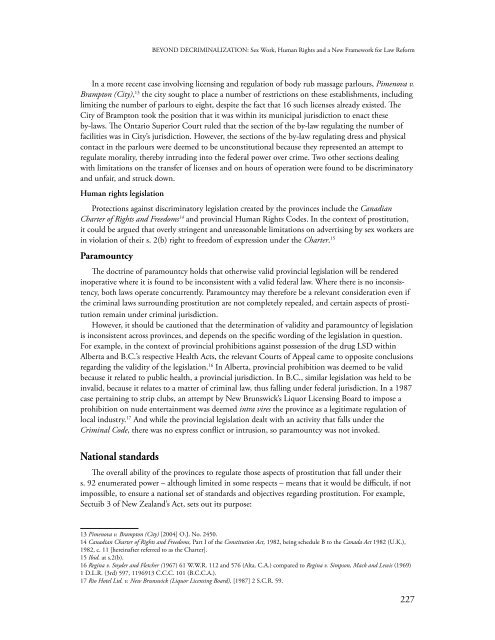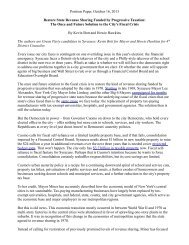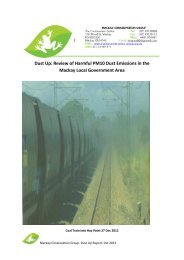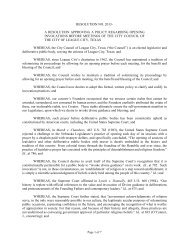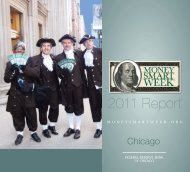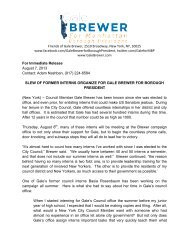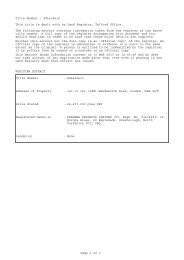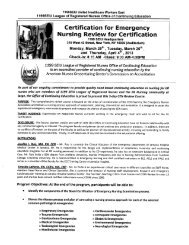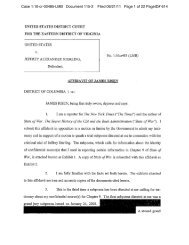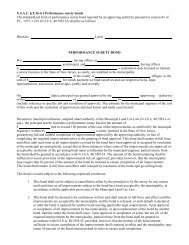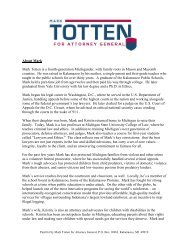Beyond Decriminalization: Sex-work, Human Rights and a New ...
Beyond Decriminalization: Sex-work, Human Rights and a New ...
Beyond Decriminalization: Sex-work, Human Rights and a New ...
- No tags were found...
Create successful ePaper yourself
Turn your PDF publications into a flip-book with our unique Google optimized e-Paper software.
BEYOND DECRIMINALIZATION: <strong>Sex</strong> Work, <strong>Human</strong> <strong>Rights</strong> <strong>and</strong> a <strong>New</strong> Frame<strong>work</strong> for Law ReformIn a more recent case involving licensing <strong>and</strong> regulation of body rub massage parlours, Pimenova v.Brampton (City), 13 the city sought to place a number of restrictions on these establishments, includinglimiting the number of parlours to eight, despite the fact that 16 such licenses already existed. TheCity of Brampton took the position that it was within its municipal jurisdiction to enact theseby-laws. The Ontario Superior Court ruled that the section of the by-law regulating the number offacilities was in City’s jurisdiction. However, the sections of the by-law regulating dress <strong>and</strong> physicalcontact in the parlours were deemed to be unconstitutional because they represented an attempt toregulate morality, thereby intruding into the federal power over crime. Two other sections dealingwith limitations on the transfer of licenses <strong>and</strong> on hours of operation were found to be discriminatory<strong>and</strong> unfair, <strong>and</strong> struck down.<strong>Human</strong> rights legislationProtections against discriminatory legislation created by the provinces include the CanadianCharter of <strong>Rights</strong> <strong>and</strong> Freedoms 14 <strong>and</strong> provincial <strong>Human</strong> <strong>Rights</strong> Codes. In the context of prostitution,it could be argued that overly stringent <strong>and</strong> unreasonable limitations on advertising by sex <strong>work</strong>ers arein violation of their s. 2(b) right to freedom of expression under the Charter. 15ParamountcyThe doctrine of paramountcy holds that otherwise valid provincial legislation will be renderedinoperative where it is found to be inconsistent with a valid federal law. Where there is no inconsistency,both laws operate concurrently. Paramountcy may therefore be a relevant consideration even ifthe criminal laws surrounding prostitution are not completely repealed, <strong>and</strong> certain aspects of prostitutionremain under criminal jurisdiction.However, it should be cautioned that the determination of validity <strong>and</strong> paramountcy of legislationis inconsistent across provinces, <strong>and</strong> depends on the specific wording of the legislation in question.For example, in the context of provincial prohibitions against possession of the drug LSD withinAlberta <strong>and</strong> B.C.’s respective Health Acts, the relevant Courts of Appeal came to opposite conclusionsregarding the validity of the legislation. 16 In Alberta, provincial prohibition was deemed to be validbecause it related to public health, a provincial jurisdiction. In B.C., similar legislation was held to beinvalid, because it relates to a matter of criminal law, thus falling under federal jurisdiction. In a 1987case pertaining to strip clubs, an attempt by <strong>New</strong> Brunswick’s Liquor Licensing Board to impose aprohibition on nude entertainment was deemed intra vires the province as a legitimate regulation oflocal industry. 17 And while the provincial legislation dealt with an activity that falls under theCriminal Code, there was no express conflict or intrusion, so paramountcy was not invoked.National st<strong>and</strong>ardsThe overall ability of the provinces to regulate those aspects of prostitution that fall under theirs. 92 enumerated power – although limited in some respects – means that it would be difficult, if notimpossible, to ensure a national set of st<strong>and</strong>ards <strong>and</strong> objectives regarding prostitution. For example,Sectuib 3 of <strong>New</strong> Zeal<strong>and</strong>’s Act, sets out its purpose:13 Pimenova v. Brampton (City) [2004] O.J. No. 2450.14 Canadian Charter of <strong>Rights</strong> <strong>and</strong> Freedoms, Part I of the Constitution Act, 1982, being schedule B to the Canada Act 1982 (U.K.),1982, c. 11 [hereinafter referred to as the Charter].15 Ibid. at s.2(b).16 Regina v. Snyder <strong>and</strong> Fletcher (1967) 61 W.W.R. 112 <strong>and</strong> 576 (Alta. C.A.) compared to Regina v. Simpson, Mack <strong>and</strong> Lewis (1969)1 D.L.R. (3rd) 597, 1196913 C.C.C. 101 (B.C.C.A.).17 Rio Hotel Ltd. v. <strong>New</strong> Brunswick (Liquor Licensing Board), [1987] 2 S.C.R. 59.227


